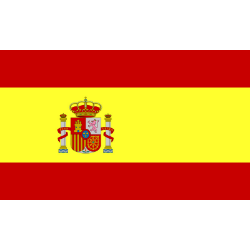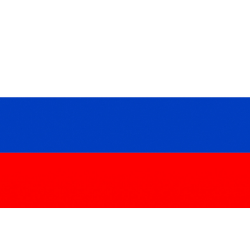What is the difference between realize and notice? When someone sends a message to somebody and he/she did not notice immediately in this case can I say: Sorry I did not notice your message. Or Sorry I did not realize your message.
Difference between Realize and Notice Answer
The right answer for this sentence is: I did not notice.
This means I did not see your message. or that I did not realize your message is in my inbox.
Realize and notice are what we call “close synonyms.” These are synonyms that have a similar meaning but are not completely interchangeable. This means that you should use them depending on the context of the sentence, and not just if the word fits grammatically. Let’s go over the difference between Realize and Notice!
Notice Meaning
First, let’s go over the uses and meaning of the word notice. It means that you have seen and recognized something you haven’t seen before. You would use it at that moment when you see something new, like when someone cut their hair.
English  | Noticing |
Spanish | Notar |
French | Remarquer |
Italian | Notando |
German | Bemerken |
Portuguese | Notícia |
Russian | Заметить |
Chinese | 注意到 |
Japanese | 気づき |
Polish | Zauważenie |
English  | Notice means that you have seen and recognized something you haven’t seen before. You would use it at that moment when you see something new, like when someone cut their hair. |
Spanish | Notar significa que has visto y reconocido algo que no habías visto antes. Lo usarías en ese momento en el que ves algo nuevo, como cuando alguien se corta el pelo. |
French | Un avis signifie que vous avez vu et reconnu quelque chose que vous n’aviez jamais vu auparavant. Vous l’utiliseriez à ce moment-là lorsque vous voyez quelque chose de nouveau, comme lorsque quelqu’un s’est coupé les cheveux. |
Italian | Notare significa che hai visto e riconosciuto qualcosa che non avevi visto prima. Lo useresti in quel momento quando vedi qualcosa di nuovo, come quando qualcuno si taglia i capelli. |
German | Bemerken bedeutet, dass Sie etwas gesehen und erkannt haben, das Sie vorher nicht gesehen haben. Sie würden es in dem Moment verwenden, wenn Sie etwas Neues sehen, z. B. wenn sich jemand die Haare geschnitten hat. |
Portuguese | Notar significa que já viu e reconheceu algo que não tinha visto antes. Utilizá-lo-ia naquele momento em que se vê algo novo, como quando alguém corta o seu cabelo. |
Russian | Заметить означает, что вы видели и узнали то, чего раньше не видели. Вы используете это в тот момент, когда видите что-то новое, например, когда кто-то стрижет волосы. |
Chinese | 注意的意思是你已经看到并认识到了你以前没有看到的东西。当你看到新的东西时,你会在那一刻使用它,比如有人剪头发时。 |
Japanese | Noticeは、今まで見たことのないものを見た、認識したという意味です。誰かが髪を切った時のように、何か新しいものを見た時にその瞬間に使いますよね。 |
Polish | Zauważyć oznacza, że widziałeś i rozpoznałeś coś, czego wcześniej nie widziałeś. Użyłbyś go w tym momencie, kiedy widzisz coś nowego, np. kiedy ktoś obcina włosy. |
Here’s an example:
- Jasmine, you cut your hair! I didn’t even notice until now. It looks really good.
Here you can see that notice is used at that moment of recognizing something. Notice is tied to our senses and is used when we hear, feel, or see something.
Notice examples
- Did you ever notice how he only wears black clothes? Does he have any other color in his wardrobe?
- From all the running I didn’t even notice that it was so cold in my apartment.
- I finally bought new headphones and the first thing I noticed was how good the bass is.
Notice Usage
Notice is used when we experience something physical. You don’t think a lot about things you notice, it just happens at some point. You can, however, try hard to notice something. Like when you’re looking at a painting and you want to experience every part of it.
Realize Meaning
Realization is very different in that respect. It is used when you actively think about something and go over it in your head. It is tied to mental experience rather than physical.
English  | Realizing |
Spanish | Realizando |
French | Réaliser |
Italian | Realizzare |
German | Realisieren |
Portuguese | Percebendo |
Russian | Понимая |
Chinese | 实现 |
Japanese | 実現 |
Polish | Realizując |
Here’s an example:
- After going over the code I finally realized my mistake. I ran it again and now it works just fine.
As you can see we have to work a bit harder to realize something than we have to notice something. A realization can come to you fairly quickly, but it’s not the same as when you notice something.
We can realize how our actions affected someone, or how we acted in a conversation. We can realize the answers to some tough questions, or just realize how a person feels.
English  | Realization is used when you actively think about something and go over it in your head. It is tied to mental experience rather than physical. |
Spanish | La realización se utiliza cuando se piensa activamente en algo y se repasa en la cabeza. Está ligado a la experiencia mental más que a la física. |
French | La réalisation est utilisée lorsque vous réfléchissez activement à quelque chose et que vous le passez en revue dans votre tête. Elle est liée à l’expérience mentale plutôt que physique. |
Italian | La realizzazione si usa quando si pensa attivamente a qualcosa e la si ripassa nella testa. È legato all’esperienza mentale piuttosto che fisica. |
German | Realisation wird verwendet, wenn Sie aktiv über etwas nachdenken und es im Kopf durchgehen. Es ist eher an geistige Erfahrung als an körperliche gebunden. |
Portuguese | A realização é utilizada quando se pensa activamente em alguma coisa e se passa por cima dela na cabeça. Está ligada à experiência mental em vez de física. |
Russian | Понимание используется, когда ты активно думаешь о чем-то и думаешь об этом в своей голове. Это связано с умственным опытом, а не с физическим. |
Chinese | 当你积极思考某件事情,并在脑海中过目不忘时,就会用到觉悟。它与心理经验而不是身体联系在一起。 |
Japanese | リアライゼーションとは、何かを能動的に考え、頭の中でそれを超えるときに使用されます。それは物理的なものではなく、精神的な経験に結びついています。 |
Polish | Urzeczywistnienie jest używane, kiedy aktywnie myślisz o czymś i przeglądasz to w swojej głowie. Jest to raczej związane z doświadczeniem mentalnym niż fizycznym. |
Realize examples
- I didn’t even realize how sad he was until James told me. He’s always so cheerful around people.
- After our conversation yesterday I realized I was wrong. I’m sorry.
- She spent all day yesterday working on that mathematical equation. Then today she told me she finally realized how to work it through.
- You can’t get good grades without doing the hard work. You realize that, don’t you?
- He’s so stubborn and full of himself. He’ll never realize that he made a mistake, and he’ll never apologize.
- As a company, we have to realize that there are some problems in the workplace and fix them.
Realize Usage
As you can see the act of realizing something comes from thinking about it. Realize is used when describing how we come to understand emotions, problems, or just the world around us.
Difference between Realize and Notice
Both notice and realize have something to do with coming to a conclusion, seeing something, or thinking about something. However, they are used in two totally different ways. You notice something quick, but you realize things a lot slower usually.
English  | Both notice and realize have something to do with coming to a conclusion, seeing something, or thinking about something. However, they are used in two totally different ways. You notice something quick, but you realize things a lot slower. |
Spanish | Tanto notar como darse cuenta tienen que ver con llegar a una conclusión, ver algo o pensar en algo. Sin embargo, se utilizan de dos maneras totalmente diferentes. Uno se da cuenta de algo rápidamente, pero se da cuenta de cosas mucho más lentamente. |
French | Les deux remarquent et réalisent qu’ils ont quelque chose à voir avec le fait d’arriver à une conclusion, de voir quelque chose ou de penser à quelque chose. Cependant, ils sont utilisés de deux manières totalement différentes. Vous remarquez quelque chose rapidement, mais vous réalisez les choses beaucoup plus lentement. |
Italian | Sia notice che realize hanno qualcosa a che fare con il giungere a una conclusione, vedere qualcosa o pensare a qualcosa. Tuttavia, sono usati in due modi completamente diversi. Si nota qualcosa velocemente, ma ci si rende conto delle cose molto più lentamente. |
German | Sowohl notice als auch realize haben etwas damit zu tun, zu einem Schluss zu kommen, etwas zu sehen oder über etwas nachzudenken. Sie werden jedoch auf zwei völlig unterschiedliche Arten verwendet. Man bemerkt etwas schnell, aber man realisiert Dinge viel langsamer. |
Portuguese | Ambos notam e percebem que têm algo a ver com chegar a uma conclusão, ver algo, ou pensar em algo. No entanto, são utilizadas de duas formas totalmente diferentes. Repara em algo rapidamente, mas apercebe-se das coisas muito mais lentamente. |
Russian | И заметить, и осознать имеют какое-то отношение к тому, чтобы прийти к выводу, увидеть что-то или подумать о чем-то. Однако, они используются двумя совершенно разными способами. Вы замечаете что-то быстро, но понимаете это гораздо медленнее. |
Chinese | 注意到和意识到都与得出结论、看到一些东西或思考一些东西有关。然而,它们的使用方式完全不同。你注意到的东西很快,但你意识到的东西要慢得多。 |
Japanese | 気づく」も「気づく」も、結論を出すこと、何かを見ること、何かについて考えることに関係しています。しかし、この2つは全く違う意味で使われています。何かに気づくのは早いですが、気づくのはもっと遅くなります。 |
Polish | Zarówno notice jak i realize mają coś wspólnego z dochodzeniem do wniosku, widzeniem czegoś lub myśleniem o czymś. Jednakże, są one używane na dwa zupełnie różne sposoby. Zauważasz coś szybko, ale zdajesz sobie sprawę z rzeczy o wiele wolniej. |
Learn English for FREE:
- How to Write a Ph.D. Paper
- 25 Ways to Say “Keep Up The Good Work” 💪 & Meaning 🤓
- What does it mean to Recognise?
- 27 Most Common Collocations with Fire
- 9 Most Common English Proverbs About Family
- Uncountable Nouns 🧚♀️ List of Words Without Plural Form
- How to Write a Short Story Step by Step Guide 📚🏆
- Phrasal verbs with Escaped
- Comprehensive List of Question Words
- When does one use Either or Neither?
- How To Start An Essay? • Essay topics • What is an essay • Hooks for essays

























THANKS